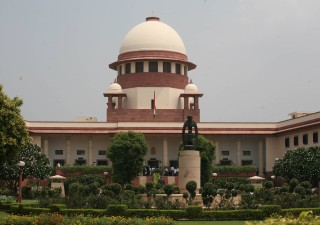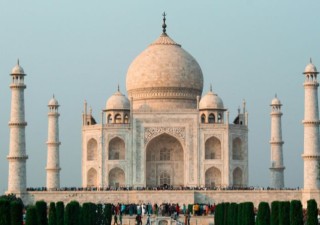Jurisdiction Devoid of Boundaries
18 November 2014

“Man should not draw lines on the land. The winds will dim them, the snows will cover them, and the rains will wash them away.” – attributed to Cochise
In a landmark decision, the Division Bench of the Delhi High Court, in World Wrestling Entertainment v. Reshma Collection & Ors, provided an expansive interpretation to the principles of territorial jurisdiction under the Copyright Act, 1957 and the Trade Marks Act, 1999, which caters to the evolving needs of the rapidly growing e-commerce model of businesses.
The plaintiffs, a company incorporated in the US, filed suit against the defendants, based in Mumbai, for infringements of trademark and copyright. The Court held that, by making sales through a website accessible in Delhi, the plaintiff “carries on business” in Delhi for the purpose of invoking territorial jurisdiction of the court under Section 134(2) of the Trade Mark Act and Section 62(2) of the Copyright Act.
In the impugned order passed in 2013 by the Single Judge, the court rejected the plaint under the provisions of Order VII Rule 10, for want of territorial jurisdiction, finding that the plaintiff’s interactive website for sales in Delhi cannot be understood to mean that the plaintiff “carries on business” in Delhi. The Single Judge relied on Dhodha House v. SK Maingi and Archie Comic Publications v. Purpose Creations, where the term “carries on business” was elaborated upon, and conditions for coming under the ambit of such term were laid out.
The plaintiff attempted to draw a distinction from those judgments in stating that they fail to take into account the ‘new media’ of online sales. The Single Judge opined that even though the plaintiff is following an e-commerce model of business, the tests which determine when and where a contract is made, and whether the vendor carries on business at the place where the merchandise may be sold, would still be governed by the principles laid out in Bhagwan Goverdhandas Kedia v. Girdharilal Parshottamdas & Co, and thus rejected the plaint.
On appeal, the Division Bench, agreed with the plaintiff that the issue of territorial jurisdiction is a mixed question of fact and law, and therefore, ought to be adjudicated at the final stage of the suit, and not at a preliminary stage of admission.
The Bench clarified the law in relation to territorial jurisdiction by pointing out that in Dhodha House, the Supreme Court had clearly observed that for the purpose of carrying on business, the presence of the person concerned at a particular place is not necessary, and must only conform with three conditions: (i) the agent must be a special agent who attends exclusively to the business of the principal, (ii) the person acting as agent must be an agent in the strict sense of the term, and (iii) to constitute ‘carrying on business’ at a certain place, the essential part of the business must be performed at that place. The Bench, acknowledging the possibility of an entity having a virtual presence in a place far from where it has a physical presence, and further relying on the growing trend of businesses using virtual business models, refined the applicability of this judgment, with emphasis on how to interpret what is actually meant by “carrying on business.”
To determine whether the third requirement is fulfilled, the decision of the Division Bench hinged on the same principles of Bhagwan Goverdhandas, the full ramifications of which the Single Judge did not perceive. The Bench extended the principles with respect to conclusion of contracts over the telephone to the facts of this case, in stating that, a contract formed over the internet, just like a telephonicallyconcluded contract, would not have been envisaged by the legislature. Thus, the legislature could not have intended to make any rule in that regard.
The Bench accordingly interpreted the interactive website of the plaintiff to constitute an “invitation to an offer” for the sale of the plaintiff’s goods. The acceptance of this invitation by a customer in Delhi becomes an “offer” made by the customer. It is only when the transaction is confirmed and the payment is made to the plaintiff through its website that the plaintiff “accepts” the offer. Thus, under the provisions of the Indian Contract Act, 1872, read with the principles expounded in Bhagwan Goverdhandas, since the transaction takes place instantaneously, the acceptance of the offer by the plaintiff is communicated to the customer in Delhi, meaning that the contract is concluded in Delhi.
Consequently, the Bench found that since the offer is made in Delhi, the contract is concluded in Delhi and the money would emanate from Delhi, the plaintiff is carrying on business within Delhi. Accordingly, providing a holistic interpretation to all the reliances of the Single Judge, the Division Bench found that territorial jurisdiction may still be invoked by the Delhi High Court.
Anand and Anand
First Channel Building
Plot No. 17 A, Sector 16 A
Film City, Noida 201301 (UP)
India
T: +91 120 4059300
F : +91 120 4243056 - 058
E : email@anandandanand.com
W: www.anandandanand.com






